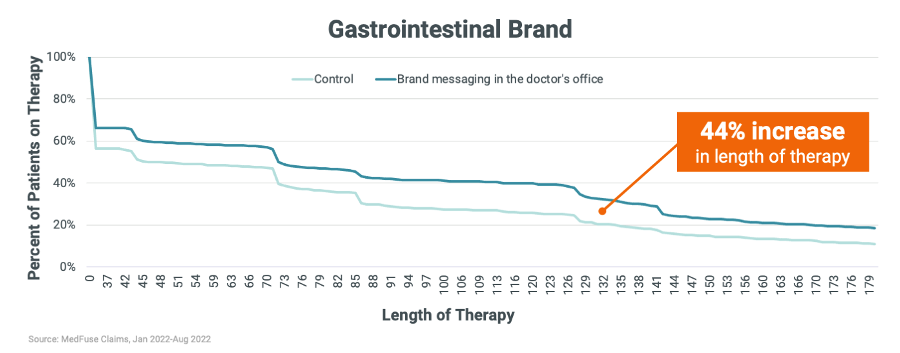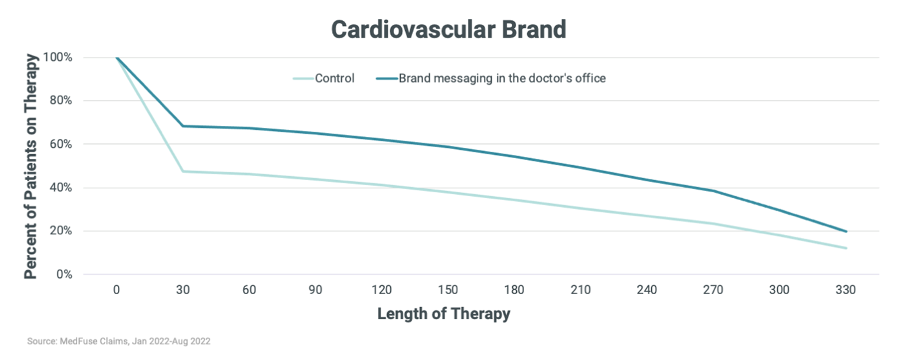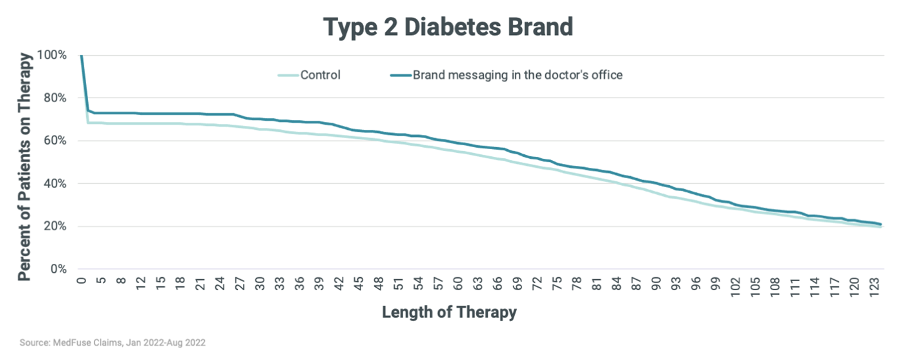*Originally published by PatientPoint. To learn more about PatientPoint, visit patientpoint.com
Solving challenges related to medication adherence has been a major focus for pharmaceutical and healthcare organizations for decades. When patients fail to stay on therapy, outcomes suffer: The Annals of Internal Medicine estimate 125,000 deaths in the U.S. are attributed to nonadherence annually. Yet studies show at least half of patients with chronic illnesses still drop off treatment in the first year. Contributing factors include:
- Lack of awareness and/or confusion: Many patients may not be aware of the importance of adhering to prescribed medication regimens or don’t receive enough information about their condition and/or prescribed treatment to feel compelled to follow doctor’s orders. According to a recent survey by PatientPoint and OnePoll, 59% of American consumers said they wished their healthcare provider gave them more educational materials on their condition; another 55% said they wanted their HCP to speak in more detail about treatment/medication for their condition.
- Cost: High co-pays and deductibles along with rising inflation costs can discourage patients from filling their prescriptions or taking them as directed. In the same PatientPoint/OnePoll survey, for 57% of respondents, inflation has made them choose between paying for their prescriptions and paying for utilities, groceries and/or rent.
The ultimate goal for all stakeholders is to alleviate challenges like these so patients can live longer, healthier lives. For pharmaceutical companies, one solution proven to help address medication adherence is extending brand messaging into the doctor’s office, or at the Point of Care.
The Impact of Point of Care Marketing
PatientPoint Strategy & Insights data experts analyzed what impact the use of point-of-care marketing has on medication adherence. Using test/control methodology, PatientPoint compared time on therapy of new-to-brand patients exposed to messaging in the waiting room and/or exam room versus patients not exposed.
A blinded case study found a gastrointestinal brand saw a 44% increase in length of therapy for new-to-brand patients exposed to a brand ad in the waiting room and exam room versus the control. The separation was noted after the first dose: 66% of patients exposed to brand ads in the doctor’s office received more than one dose compared to 57% of patients who were not exposed to the ads.

This impact was not limited to patients: Further analysis showed HCPs wrote a second script more often if they were exposed to the gastrointestinal brand’s ad in the office via back office digital screens.
PatientPoint analysis revealed similar results for a leading cardiovascular brand: Those new-to-brand patients who saw brand messaging in the waiting room and exam room stayed on therapy 45% longer than the control group, with 68% of patients receiving more than one dose compared to 47% patients within the control group. This increased adherence was seen regardless of specialty and/or diagnosis.

A type 2 diabetes medication leveraging point-of-care marketing tactics also increased new-to-brand patients’ length of therapy by 8%. Nearly three-quarters of patients seeing ads in the doctor’s office received a second dose, while 68% of control patients received a second dose.

Facilitating Better Engagements
Medication nonadherence is a serious barrier to improving people’s quality of life and the overall population health. It also has a significant impact on pharmaceutical company revenue: A report from HealthPrize Technologies estimates pharma manufacturers in the U.S. lose up to $250 billion in revenue each year due to medication nonadherence for chronic illnesses.
Pharmaceutical companies should employ a range of strategies to address this challenge. The addition of messaging at the doctor’s office is a proven way to increase awareness of the importance of medication adherence, improve patients’ understanding of their condition and treatment, offer additional information regarding patient support and savings programs, and position the company as an advocate for the patient’s long-term health.
